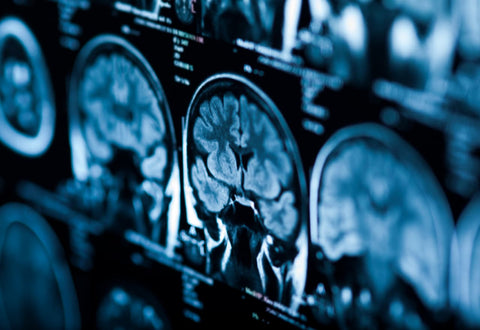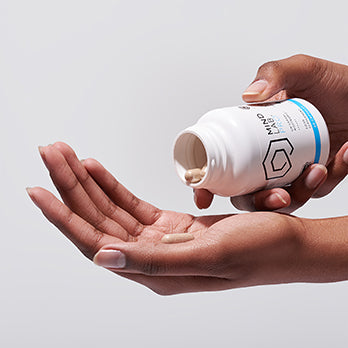Memory /'mɛm(ə)ri/
noun
- the faculty by which the mind stores and remembers information.
- something remembered from the past.
In the field of psychology, memory is defined as, "the ability to encode, store, and retrieve information".
But in our day-to-day lives, memory is so much more than that. Our memory helps make us who we are. Memory is knowledge, relationships, learning, emotion, routine. And memory is stories.
And who doesn't love to hear a great story?
When was the last time you found yourself in a room with a bunch of strangers? You start with the small talk, and eventually find common ground. Suddenly, you find someone who also remembers that obscure TV programme you watched 2 decades ago... who loves that little restaurant on the corner as much as you do... was at that gig you went to 5 years ago.
Memories can bring people together.
Memory is also immediately useful information. The practical stuff. The name of the movie you watched on Netflix. The place you left your keys. The peace of mind when you're halfway to work that you did turn the iron off.
"Memory is concerned with the facts and experiential details that people consciously call to mind, as well as knowledge that can be drawn on without effort or even awareness." - Dr Andrea Utley, Ph.D. Professor at the University of Leeds.
Life is easier, smoother and more enjoyable with an efficient memory.
Study 2: The quality and efficiency of memory

For our second study, a total of 49 healthy individuals between the ages of 20-68 took part. The participants were split into 2 groups. Like our first study, this was a pseudo randomized, double blind, placebo-controlled study. A gold standard clinical study.
Pseudo Randomized:
Participants are assigned to different groups in a randomized way, whilst still ensuring both groups are evenly matched in terms of age, gender, and socioeconomic background.
Double Blind:
Both participants and researchers are unaware of who is receiving the actual treatment and who is receiving the placebo.
Placebo Controlled:
One of the groups (the experimental group) receives the actual treatment - Mind Lab Pro®. The other group (the control group) receives a placebo.
The tests were based around the world-renowned Wechsler Memory Scale (4th edition). A comprehensive tool that evaluates various memory aspects, including visual, verbal, immediate, and delayed recall. The participants were given several tasks, each relating to different categories of memory.
Three main categories of memory

Sensory Memory
This is the shortest form of memory that holds sensory information for a few seconds at most. It serves as a buffer for stimuli received through the five senses. For example, the ability to maintain an image in your mind of something you've just seen for a short period of time.
Short-Term Memory
Sometimes called working memory, it enables you to retain information for a short duration, typically up to several secoAnds to a minute. It's what we're consciously aware of and are thinking about at any given moment. This type of memory is foundational to the organization of goal-directed behavior. We make a decision based on this type of memory, and then act on it.
Long-Term Memory
This is the more permanent storage of information, which can last from minutes to a lifetime. Long-term memories can be further divided into explicit and implicit memories. Explicit, or declarative memories, can be consciously recalled like facts and events. Implicit, or procedural memories, are unconscious memories like skills, habits, and emotional conditioning.
While the main categories of memory provide an overview of how we retain and recall information over time, our brain is a specialist at handling different types of data. And the subcategories of memory are like experts in each field. Each subcategory has a specific set of skills to handle those different types of data.
Subcategories of memory
Auditory Memory (AM)
Our ability to take in information we've heard. Process that information. Store it in our mind. And then recall it.
Example: Following verbal instructions. Or remembering the lyrics to a song.
Visual Memory (VM)
Our ability to recall information we've seen. This can be in the form of images, shapes, colors, or patterns.
Example: Recognizing a face we've seen before. Or recalling a route we took while driving.
Visual Working Memory (VWM)
Our ability to temporarily maintain and manipulate visual information.
Example: When parking your car, you take a mental snapshot of where you are in relation to the buildings, streets, and landmarks around you. When you return to your car, you're using your VWM to locate it.
Immediate Recall (IR)
Our ability to remember and reproduce information immediately after you've experienced it. Without any significant delay.
Example: For an actor, this could mean rehearsing lines. For a musician this could be reading sheet music and then playing those notes without referring to the sheet.
Delayed Recall (DR)
Our ability to reproduce information after a period of time has passed. This delay can range from several minutes to weeks or even longer.
Example: Recalling the plot to a film you saw at the weekend. Or remembering the items from your shopping list even if you've left it at home.
The memory tasks.
Participants were tasked with completing exercises that tested the various subcategories of memory.
For example, the storytelling task. Participants were told two short stories. For one, they were immediately asked to recall as much as they could. For the other, they were asked to recall as much as they could after 30 minutes. Testing auditory memory, immediate recall, and delayed recall.
In the design task, participants were shown a total of 5 abstract designs for 10 seconds each. When the time-elapsed, the design was hidden and the participants were then asked to draw it from memory. Then, after 30 minutes, participants were asked to reproduce all 5 designs from memory.
Testing visual, immediate, and delayed recall.
The results

Each group completed each task before and after the 30-day testing window.
The results from the tasks concluded:
- Mind Lab Pro® starts working in just 30 days.
- Mind Lab Pro® improves immediate recall by 28% after 30 days.
- Mind Lab Pro® improves delayed recall by 26% after 30 days.
Mind Lab Pro® is scientifically proven to significantly improve immediate and delayed recall after as little as 30 days.
Watch this space for our third study: The effect of Mind Lab Pro® when taken for a duration of 3 months followed by a two-month withdrawal.




































